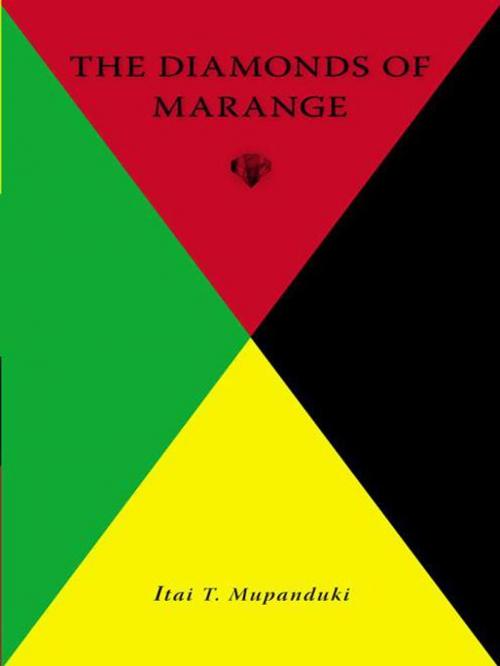| Author: | Itai T. Mupanduki | ISBN: | 9781466918542 |
| Publisher: | Trafford Publishing | Publication: | March 1, 2012 |
| Imprint: | Trafford Publishing | Language: | English |
| Author: | Itai T. Mupanduki |
| ISBN: | 9781466918542 |
| Publisher: | Trafford Publishing |
| Publication: | March 1, 2012 |
| Imprint: | Trafford Publishing |
| Language: | English |
The book explores the treacherous African mineral terrain as it illustrates the powerless voiceless peasants in the village of Marange pitted against corrupt government elite. Both are then pitted against a global Multinational company and its proxies, The Military Industrial Complex. Threatened by a political opposition party, the ruling elite is caught up in its populist rhetoric and the desire for profit. Lacking capital the ruling elite is at the crossroads. But the military industrial complex has no permanent friends, leaving the peasants caught in the middle. Marange explores the missed opportunities while at the same time leaving the reader both entertained and educated. The author takes the reader to Marange through the eyes of Mugove, a peasant farmer, Taona, a high school teacher and the generality of the characters in the book who serve in their various capacities to illustrate the disjointed social and political atmosphere emerging because of the diamond discovery. The interesting contradictions and relationships that emerge in the peasant-elite-multinational company triangle make very interesting reading. This book is an essential reading for anyone interested in Africa and its minerals.
The book explores the treacherous African mineral terrain as it illustrates the powerless voiceless peasants in the village of Marange pitted against corrupt government elite. Both are then pitted against a global Multinational company and its proxies, The Military Industrial Complex. Threatened by a political opposition party, the ruling elite is caught up in its populist rhetoric and the desire for profit. Lacking capital the ruling elite is at the crossroads. But the military industrial complex has no permanent friends, leaving the peasants caught in the middle. Marange explores the missed opportunities while at the same time leaving the reader both entertained and educated. The author takes the reader to Marange through the eyes of Mugove, a peasant farmer, Taona, a high school teacher and the generality of the characters in the book who serve in their various capacities to illustrate the disjointed social and political atmosphere emerging because of the diamond discovery. The interesting contradictions and relationships that emerge in the peasant-elite-multinational company triangle make very interesting reading. This book is an essential reading for anyone interested in Africa and its minerals.















